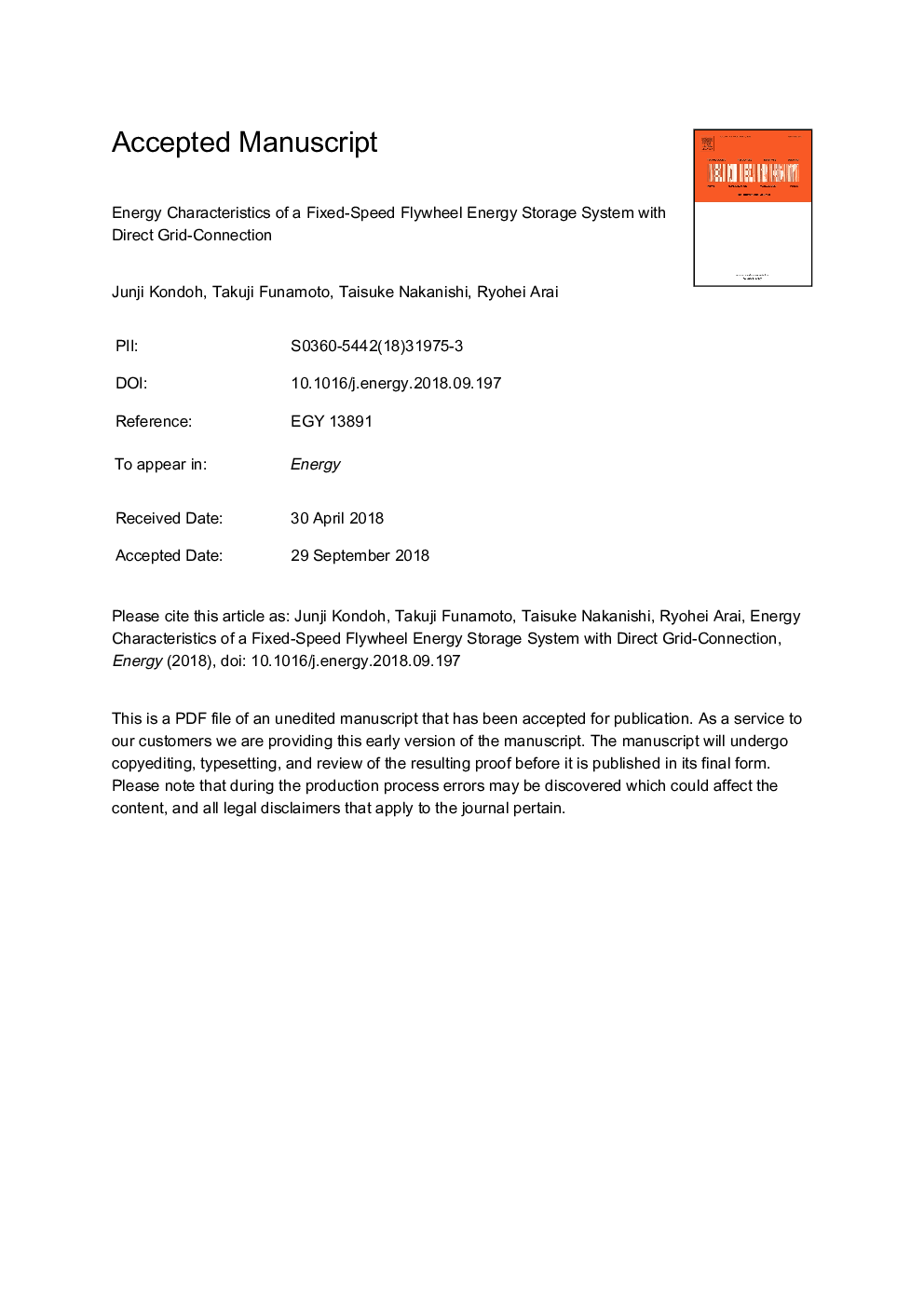| Article ID | Journal | Published Year | Pages | File Type |
|---|---|---|---|---|
| 11015683 | Energy | 2018 | 23 Pages |
Abstract
Flywheel energy storage systems (FESSs) store kinetic energy in the form of JÏ2â2, where J is the moment of inertia and Ï is the angular frequency. Although conventional FESSs vary Ï to charge and discharge the stored energy, in this study a fixed-speed FESS, in which J is changed actively while maintaining Ï, was demonstrated. A fixed-speed FESS has the advantage of being capable of direct grid-connection without requiring a power electronic interface. A prototype with an output power of several hundred watts and a charge/discharge period of several seconds has been developed and discharge/charge operations have been conducted while mechanically measuring the output energy Em from the flywheel and mechanical work Ec, to vary J. Theoretical analysis suggests a ratio of 2.2 for Em/Ec, and experimental values of Em/Ec show high reproducibility, approximately 1.8 and 2.7 in discharge and charge operations, respectively. The reason for the errors can be explained by the loss incurred in varying J.
Keywords
Related Topics
Physical Sciences and Engineering
Energy
Energy (General)
Authors
Junji Kondoh, Takuji Funamoto, Taisuke Nakanishi, Ryohei Arai,
